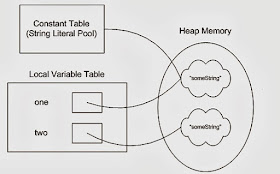Unalterable Strings: A Key Component in Ensuring Information Uniformity and Reliability
In the world of data management, the relevance of immutable strings can not be overstated. These imperishable series of characters play a critical duty in supporting the integrity and accuracy of details within systems. By maintaining a state of immutability, information uniformity is made sure, fostering a foundation of reliability whereupon important processes rely. The principle of immutable strings goes beyond plain technicality; it is a cornerstone in the complicated internet of information governance. As we explore the benefits, execution approaches, and functional applications of immutable strings, a more clear image arises of their indispensable nature in safeguarding the digital landscape.
The Idea of Unalterable Strings
Immutable strings, an essential idea in programming, describe strings that can not be modified once they are created. Essentially, when a string value is appointed, any operation that shows up to modify the string in fact develops a new string. This immutability makes certain information uniformity and reliability in applications, as it prevents unexpected modifications to the initial information.
Advantages in Data Uniformity

Information uniformity is critical in numerous aspects of software program growth, consisting of database monitoring, multi-threaded settings, and distributed systems (Why are strings immutable in Java?). Unalterable strings contribute dramatically to attaining this consistency by preventing information corruption because of simultaneous gain access to. In scenarios where multiple processes or threads connect with the exact same information all at once, immutable strings serve as a secure against race problems and synchronization concerns
Furthermore, the immutability of strings simplifies debugging and testing processes. With unalterable strings, developers can rely on that once a string is established, it will certainly remain unmodified, making it easier to trace the resource of errors and guaranteeing that examination cases create consistent results. This integrity in data managing inevitably causes a lot more secure and robust applications.

Carrying Out Unalterable Strings
Ensuring the immutability of strings calls for a thoughtful technique to their application in software program development. One key approach is to create string classes in such a way that protects against modifications as soon as a string things is developed. By making strings immutable, programmers can improve information consistency and integrity in their applications.
To implement immutable strings efficiently, designers need to favor developing new string objects as opposed to changing existing ones. This method guarantees that as soon as a string is appointed a value, it can not be transformed. Furthermore, any kind of operation that appears to change the string must produce a brand-new string with the desired adjustments instead of changing the original.
Additionally, using unalterable strings can simplify concurrency administration in multi-threaded settings. Given that unalterable strings can not be changed after creation, they can be safely shared among several strings without the threat of data corruption.
Duty in Dependability Guarantee
In software development, the use of unalterable strings plays a vital function in making sure the integrity of information procedures. Unalterable strings, as soon as created, can not be modified, making certain that the information they stand for remains regular throughout the application's execution. This immutability property provides a degree of guarantee that the data being refined will certainly not be unintentionally altered, bring about unanticipated outcomes or mistakes in the system.
By incorporating unalterable strings into software program layout, programmers can boost the integrity of their applications by reducing the dangers associated with mutable information - Why are strings immutable in Java?. Unalterable strings assist in stopping data corruption or unintended adjustments, which can be especially important when managing sensitive details or when information honesty is vital
Furthermore, making use of immutable strings simplifies concurrent processing, as multiple strings can securely accessibility and share string information without the danger of one thread altering the material while an additional reads it. This element contributes substantially to the general reliability of the software program system, making sure foreseeable and consistent actions in data handling procedures.
Applications and System Assimilation
The smooth assimilation of immutable strings right into different applications and systems is essential for ensuring robust data uniformity and reliability throughout diverse technical atmospheres - Why are strings immutable in Java?. Unalterable strings play a critical role in enhancing the integrity of try this website data exchanges and communications within complex software ecosystems. By including unalterable strings into applications, designers can reduce the threats connected with information basics tampering, unapproved adjustments, and unintentional changes, therefore fortifying the general security posture of the system
In the context of system integration, unalterable strings act as a foundational element for establishing safe interaction channels and promoting seamless data transfers in between various elements. Their immutable nature makes certain that data transferred in between systems remains proven and the same, reducing the possibility of incongruities or errors that can endanger the integrity of the entire system. Moreover, immutable strings can improve interoperability between diverse systems by providing a standard format for information representation, allowing a lot more reliable data handling and exchange protocols throughout interconnected platforms. By taking on unalterable strings in applications and system assimilation procedures, companies can strengthen their data framework and maintain the integrity and uniformity of their details properties.
Verdict
Finally, immutable strings play a vital function in maintaining data consistency and integrity in different applications and system integrations. By making sure that strings can not be altered once developed, the integrity of information is preserved, reducing the risk of errors and inconsistencies. Applying unalterable strings can dramatically improve the integrity of systems, eventually causing more reputable and precise information processing.

Comments on “Why Are Strings Immutable in Java? Insights right into Memory Performance”